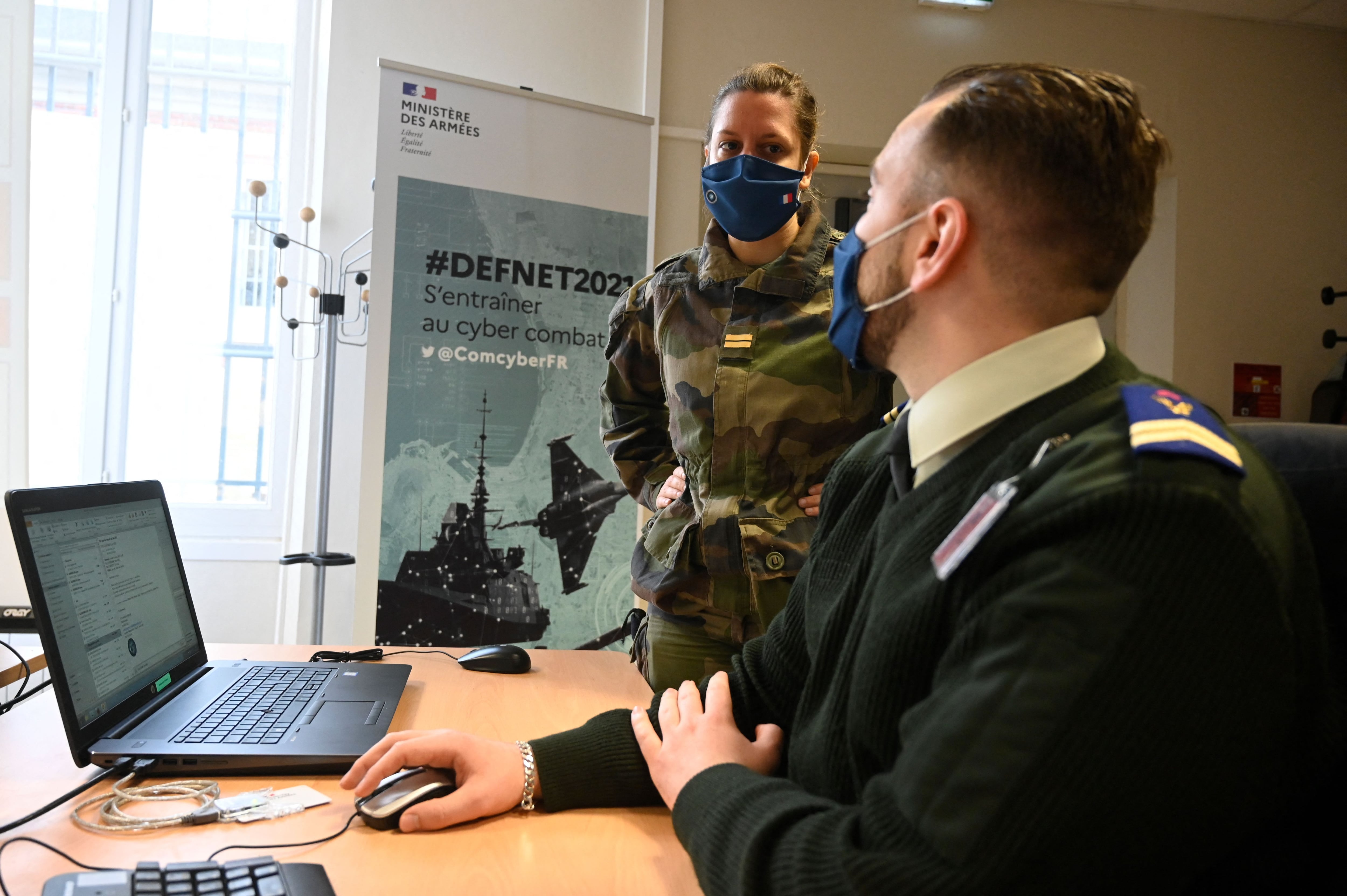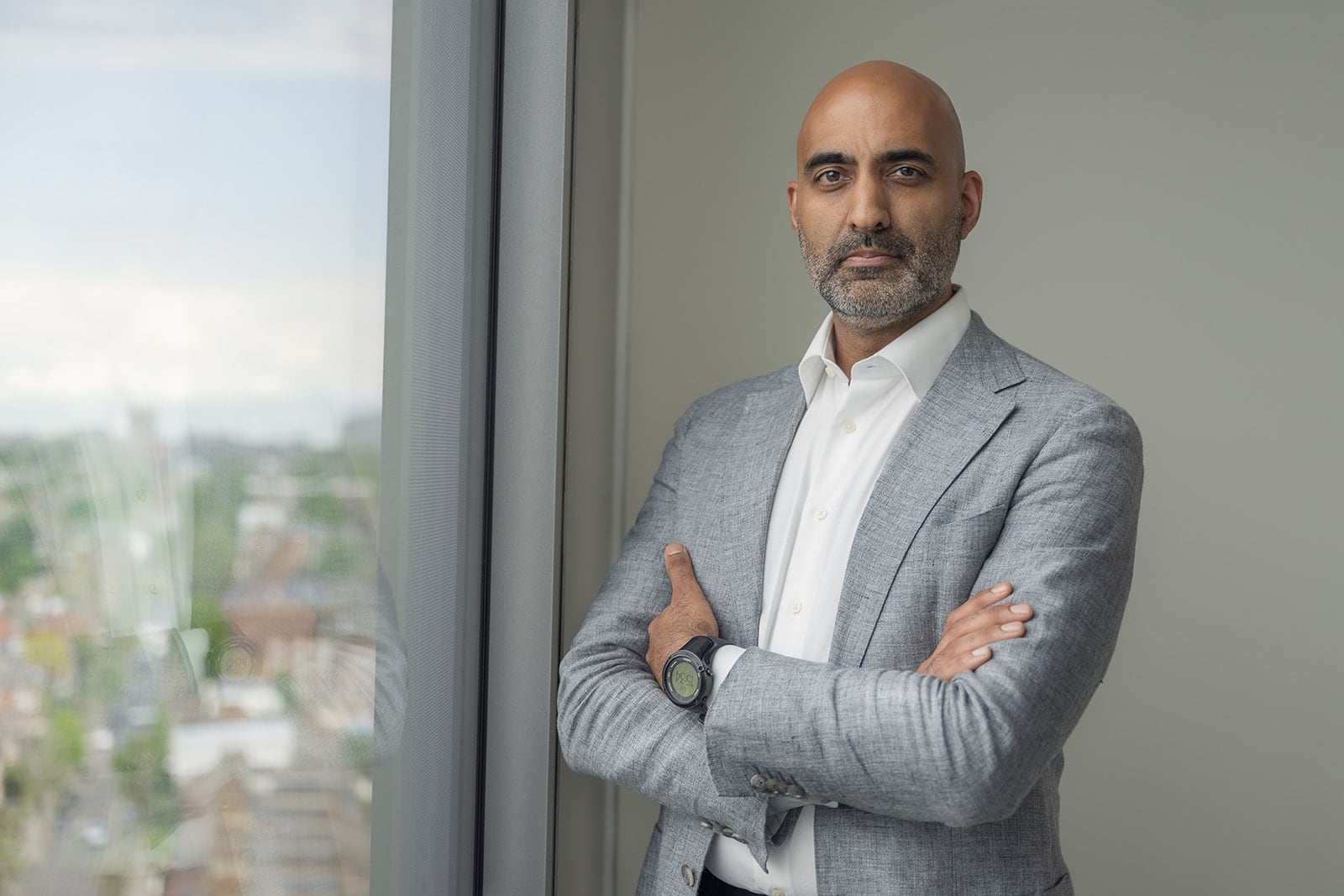STUTTGART, Germany — NATO member nations agreed in 2022 to create the Defence Innovation Accelerator for the North Atlantic, or DIANA, as a means to connect the alliance to startups and academic institutions working on emerging and disruptive technologies relevant to defense.
Through regularly occurring “technology challenges” and partnerships with more than 75 associated tech clearinghouses and test centers based in Europe and in North America, DIANA’s leaders hope to find promising solutions to real-world problems, such as operating in GPS-denied environments.
The organization’s first managing director, Deeph Chana, started work in May after formerly serving as director of the Imperial College London’s Institute for Security Science and Technology and co-director of the school’s Centre for Financial Technology.
Chana spoke with Defense News about what he hopes to bring to the table for DIANA and what to expect for its initial endeavors. This interview was edited for length and clarity.
What aspects of DIANA are the most promising to realize NATO’s 2030 science and technology goals? What are the most challenging aspects?
Building DIANA is a major step toward fulfilling the NATO 2030 goals. We are creating an innovation engine to keep NATO at the forefront of technology. DIANA will work with the best talent from across the alliance to help develop dual-use technologies to solve strategic security and defense challenges.
DIANA will also work closely with the NATO Innovation Fund, a separate body which will invest €1 billion (U.S. $1.1 billion) in early-stage startups investing in emerging and disruptive technologies.
I talk a lot about us wanting to convene the triple helix of industry, government and academia; DIANA will enable us to do this. Our wider mission is to enhance resilience and build security in society, which includes addressing global systemic risks, such as climate change.
The unique aspect here, therefore, is recognizing the need for a more complete defense mission — developing and implementing disruptive technologies to mitigate the likelihood and impacts of conflict.

What do you hope to bring from your previous careers and experience to the role of managing director for DIANA? What are some specific achievements or projects you’ve worked on that will directly inform this job?
I am a physicist by training and have spent most of my career working with deep science and technology, not just on the theoretical side but also on real-world solutions. Early in my career, for example, I worked on the Blu-ray project with Philips, so I understand how to get from fundamental scientific concepts to products.
A good part of my career has also been in the U.K. government where, among other things, I ran a unit responsible for funding science and technology to mitigate national and international security threats.
So I have a deep understanding of the risks that we face in society and how science, technology and innovation are crucial to addressing them.
In the latter part of my career, I have worked in startups and academia, building and working with early-stage technology companies for over a decade, and focusing on innovation.
Being a professor at Imperial College, I have spent considerable time and effort exploring and developing models for innovation ecosystems that enable the sustained growth of technology startups. I’m looking forward to focusing this breadth of experience on the task of standing up DIANA and setting it up for success.
What are your goals for your first year as managing director? What initiatives and planned milestones have you set for DIANA as an organization?
We are making good progress in standing up DIANA, and a big milestone is reaching initial operating capability, which will happen ahead of the NATO Summit in Vilnius in July.
We are looking to support world-class innovators as they develop cutting-edge, dual-use technologies. And very soon, DIANA will be launching its pilot challenge programs for 2023. Soon after that, we will be welcoming our first cohort of startups to the accelerator program; that’s a really big milestone.
DIANA is absolutely committed to work with the best out there — innovators with great ideas that can develop them in an agile manner, enabled by us, and attract further investment in the future.
In parallel, we recently opened our first regional office in the U.K. in London. Our regional office in North America will be in Halifax, Canada, and DIANA will also have a regional hub in Tallinn, Estonia. We will leverage a network of more than 100 accelerator sites and test centers in innovation clusters across Europe and North America, and we hope that this network will continue to grow and establish itself over the coming years.
A key priority for me as managing director is to create an organization that is agile and to build a culture that attracts top talent. I want DIANA to be diverse and inclusive, as I believe that our defense, security and technology institutions need to better represent society and its makeup. Getting the organizational culture right will be critical to the long-term success of DIANA.
What is the status of the technology challenges for DIANA? Which technology areas or needs will they focus on, and how can interested entities get involved?
We are launching our pilot challenges in June, with three themes for the 2023 program: energy resilience; secure information sharing; and sensing and surveillance. You can find out more on DIANA’s website, and we have a portal there now for registering interest. The website is also where the full details of the challenges will be published and where innovators will be able to apply when the calls go live.
DIANA is looking for people who are technically exceptional and those who can connect their technology to our dual-use mission — innovators who can see their technology applied to a civilian problem over here and a more tactical military problem over there.
To be blunt, we want less of the old-school thinking about defense. I’m not going to be too keen on us encouraging people who think that the way things are working now is fine and that DIANA is just an accelerator to make the current system run faster. That is very clearly not what DIANA is about. We are about disrupting the vision of defense and enabling emerging and disruptive technologies to be brought to bear, efficiently, to this reimagined view.
What is the 2023 budget for DIANA, and how is it split up between operations, funding for challenges and so on?
I won’t go into the specifics of our funding right now, as this will be published at the right time on our website, but DIANA is well resourced, with a budget of tens of millions of euros. I’m very conscious of the fact that the grants and support that DIANA will give will be at levels that can enable innovators in a meaningful way to realize their ideas. I’m really looking forward to working with them to make that happen. We have done our market analysis, and we know what it takes to support a startup properly and competitively.
It is important to understand that the financial burn rate for companies varies greatly, depending on what technology is being developed. Hardware development is typically a more cost-intensive endeavor than purely software-based systems.
Vivienne Machi is a reporter based in Stuttgart, Germany, contributing to Defense News' European coverage. She previously reported for National Defense Magazine, Defense Daily, Via Satellite, Foreign Policy and the Dayton Daily News. She was named the Defence Media Awards' best young defense journalist in 2020.








